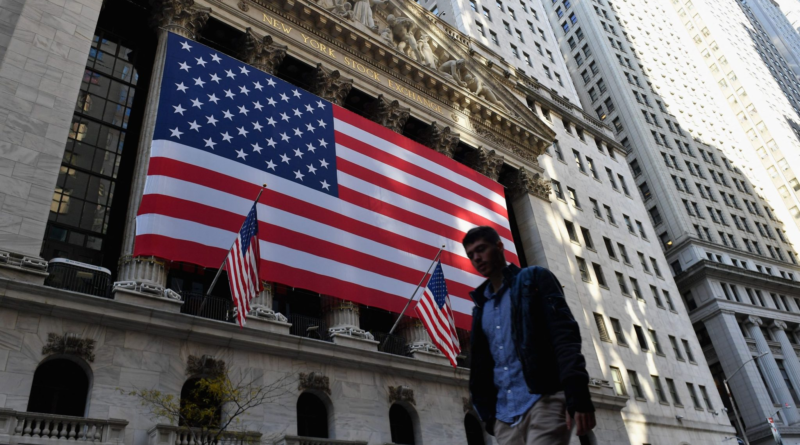Wall Street invokes risk controls it ‘normally might not do’ to face trading uncertainty during tightest election in memory
The president of the Nasdaq stock market index said the Street is now pricing in the unexpected, and trading safety nets are also being tightened to reduce volatility as much as possible.
It comes after oscillating reports of which nominee may ultimately win the Oval Office—with both candidates charting as ahead at some point in the election cycle.
While former President Donald Trump has appeared to be marginally ahead for the last few weeks, in the past 48 hours alone, that story has once again changed, prompting a ripple effect through the financial markets.
As a result, analysts are pricing in that uncertainty over the next couple of days, said Tal Cohen, president of the Nasdaq.
“When we think about the 2016 election and the 2020 election—even Brexit…[which] I think was a surprise to the markets in terms of the betting markets and the prediction markets—in this election, I think what you’re seeing is the markets are pricing in a lot of uncertainty,” Cohen told CNBC’s Squawk Box Asia on Tuesday.
“That is very important to understand as you think about volatility rolling through the markets, is what kind of uncertainty is priced into the markets?” he continued.
Cohen added that clients on both the buy and sell sides have told the Nasdaq they are being “very prudent about how they manage risk across the market over the next couple of days.”
The Nasdaq president also said he was in particular contact with regulators and was paying “very close attention” to the system’s limit and credit checks.
“Those are the things that we’ll do that we normally might not do on any other given week, but I think the Street understands to expect the unexpected this time around,” Cohen added.
Prolonged uncertainty
Accounting for uncertainty for a matter of days might prove to be somewhat optimistic—elections since the turn of the millennium have dragged on for weeks before a final result was announced.
Markets fell by nearly 8% in 2000 from election night to year-end, after the Bush-Gore battle took more than a month to resolve.
And after the chaos Washington descended into following the 2020 election, analysts might be prudent to assume Trump wouldn’t take another loss without an intense battle.
Cohen confirmed he and his clients were ready for a prolonged period of uncertainty if necessary, saying: “If it becomes a risk-off environment, or a risk-on environment, we’ll know pretty quickly in the markets.
“We’ll make sure we’re adjusting for that and that we have the operational, if you will, horsepower to manage all that.”
Economists are also warning investors that even a few weeks of uncertainty are minimal compared to the market’s overall stability.
Mark Haefele, chief investment officer at UBS Global Wealth Management, wrote in a note seen by Fortune this morning: “While some equity market volatility this week is inevitable, we do not expect the likeliest election outcomes to change our 12-month view on U.S. equities.
“We expect the S&P 500 to rise to 6,600 by the end of 2025, a c.15% price return from current levels, driven by our expectations of benign U.S. growth, lower interest rates, and the continued structural tailwind from AI. We expect these market drivers to remain in place regardless of who wins the U.S. election.”
Join business’s brightest minds and boldest leaders at the Fortune Global Forum, convening November 11 and 12 in New York City. Thought-provoking sessions and off-the-record discussions feature Fortune 500 CEOs, former Cabinet members and global Ambassadors, and 7x world champion Tom Brady–among many others.
See the full agenda here, or request your invitation.



